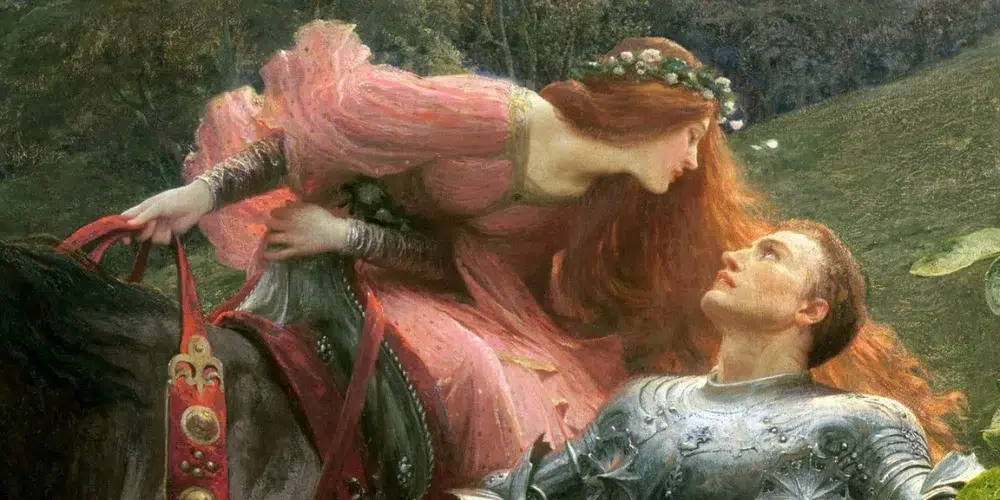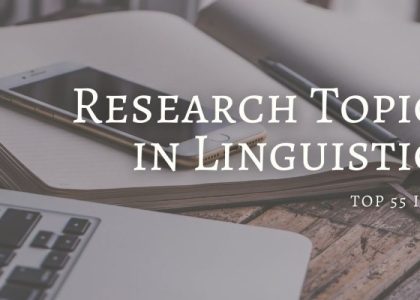Introduction
Choosing an English dissertation topic can be both exciting and challenging. The field of English literature and language is vast, offering countless opportunities to explore different genres, periods, and themes. Whether you are interested in Shakespearean works, modernist literature, post-colonial studies, or language development, this guide is here to inspire you. To help you further, we have curated a list of the top 99 English dissertation topics, organized by categories. These topics are designed to cater to a range of interests and academic levels.
Why English Dissertation Topics Matter
Your dissertation is a crucial part of your academic journey. It’s an opportunity to showcase your understanding of a specific area of English literature or language. Choosing the right topic not only ensures your interest throughout the research process but also helps in creating a meaningful contribution to the field. From exploring timeless classics to investigating contemporary issues, your topic can reflect your passion and academic focus.
English Dissertation Topics Brief Service
At dissertation-help.co.uk, we offer a comprehensive Dissertation Topics Brief Service to help you select a suitable dissertation topic. Our expert writers can help you generate ideas and outline a detailed topic brief of 500 words. This service ensures that you are headed in the right direction for your dissertation, with a clear and focused topic that meets academic standards.
Paid Topic Consultation Service
You will get the topics first as per the given requirements, and then the brief which includes;
- An explanation why we choose this topic.
- 2-3 research questions.
- Key literature resources identification.
- Suitable methodology with identification of raw sample size, and data collection method
- View a sample of topic consultation service
Download Sample Dissertations Pdf
Before you start working on your own dissertation, it’s helpful to take a look at some sample dissertations. Our collection of sample dissertations covers a wide range of English dissertation topics and can give you a better understanding of how to structure and write your own dissertation.
You can download free dissertation samples and topic briefs to get an idea of how to approach your topic and craft an engaging dissertation. This can serve as inspiration and guidance throughout your research process.
Top 99 English Dissertation Topics
1. Shakespearean Literature
- The role of women in Shakespearean tragedies.
- Power and politics in Shakespeare’s history plays.
- Themes of jealousy in Othello and The Winter’s Tale.
- The supernatural in Macbeth and Hamlet.
- Representations of love in Shakespeare’s sonnets.
2. Modernist Literature
- The fragmentation of identity in James Joyce’s Ulysses.
- Virginia Woolf’s portrayal of time into the Lighthouse.
- The influence of World War I on T.S. Eliot’s poetry.
- Alienation in Franz Kafka’s The Metamorphosis.
- The symbolism of the sea in Joseph Conrad’s works.
3. Post-Colonial Literature
- Identity and displacement in Chinua Achebe’s Things Fall Apart.
- Hybridity in Salman Rushdie’s Midnight’s Children.
- Gender and colonialism in Jean Rhys’ Wide Sargasso Sea.
- Post-colonial eco-criticism in Amitav Ghosh’s The Hungry Tide.
- Narratives of resistance in Ngugi wa Thiong’o’s works.
4. Victorian Literature
- The role of industrialization in Charles Dickens’ Hard Times.
- Gender roles in the Brontë sisters’ novels.
- Gothic elements in Bram Stoker’s Dracula.
- The portrayal of morality in Oscar Wilde’s The Picture of Dorian Gray.
- Class dynamics in Elizabeth Gaskell’s North and South.
5. American Literature
- The American Dream in F. Scott Fitzgerald’s The Great Gatsby.
- Race and identity in Toni Morrison’s Beloved.
- Nature and transcendentalism in Henry David Thoreau’s works.
- The Lost Generation in Ernest Hemingway’s The Sun Also Rises.
- Southern Gothic in William Faulkner’s As I Lay Dying.
6. Language Studies
- The evolution of the English language over centuries.
- Regional dialects and their cultural significance.
- The impact of social media on modern English usage.
- Language acquisition in multilingual contexts.
- Gendered language in professional settings.
7. Contemporary Literature
- Feminism in Margaret Atwood’s The Handmaid’s Tale.
- Dystopian themes in Suzanne Collins’ the Hunger Games.
- The impact of technology in Dave Eggers’ the Circle.
- LGBTQ+ representation in contemporary fiction.
- The role of memory in Kazuo Ishiguro’s Never Let Me Go.
8. Poetry Analysis
- Nature and imagination in William Wordsworth’s poetry.
- The role of death in Emily Dickinson’s works.
- Romanticism in John Keats’ Ode to a Nightingale.
- War poetry in the works of Wilfred Owen and Siegfried Sassoon.
- The role of politics in Audre Lorde’s poetry.
9. Comparative Literature
- A comparison of dystopian themes in 1984 and Brave New World.
- The portrayal of revenge in Hamlet and The Count of Monte Cristo.
- Love and tragedy in Romeo and Juliet and Wuthering Heights.
- Magic realism in Gabriel García Márquez and Isabel Allende.
- Feminist themes in Virginia Woolf and Simone de Beauvoir.
10. Children’s Literature
- Moral lessons in the works of Beatrix Potter.
- The use of allegory in C.S. Lewis’ The Chronicles of Narnia.
- Identity and belonging in J.K. Rowling’s Harry Potter series.
- The portrayal of bravery in Roald Dahl’s works.
- Environmental themes in Dr. Seuss’ The Lorax.
11. Feminist Literature
- The role of patriarchy in Sylvia Plath’s The Bell Jar.
- Female empowerment in Maya Angelou’s poetry.
- Intersectionality in Alice Walker’s The Color Purple.
- The impact of the #MeToo movement on contemporary literature.
- Women’s voices in the works of Chimamanda Ngozi Adichie.
12. Gothic Literature
- The role of isolation in Mary Shelley’s Frankenstein.
- Supernatural elements in Edgar Allan Poe’s short stories.
- The influence of architecture in Gothic novels.
- Fear and psychology in Daphne du Maurier’s Rebecca.
- The role of the sublime in Ann Radcliffe’s works.
13. Drama and Theatre
- Realism in Henrik Ibsen’s plays.
- The absurdity of existence in Samuel Beckett’s Waiting for Godot.
- Tragedy in Sophocles’ Oedipus Rex.
- Satire in Oscar Wilde’s The Importance of Being Earnest.
- Political themes in Bertolt Brecht’s works.
14. Cultural Studies
- Representations of ethnicity in Zadie Smith’s White Teeth.
- Postmodernism in Don DeLillo’s White Noise.
- The intersection of literature and music in Bob Dylan’s lyrics.
- Food as a symbol in Jhumpa Lahiri’s Interpreter of Maladies.
- The portrayal of urban spaces in contemporary fiction.
15. Experimental Literature
- Stream of consciousness in Virginia Woolf and James Joyce.
- Visual poetry in e.e. cummings’ works.
- Narrative fragmentation in David Mitchell’s Cloud Atlas.
- Non-linear storytelling in Jennifer Egan’s A Visit from the Goon Squad.
- Interactive narratives in modern digital literature.
16. Historical Literature
- The portrayal of war in Homer’s The Iliad.
- The Black Death in Chaucer’s The Canterbury Tales.
- The French Revolution in Charles Dickens’ A Tale of Two Cities.
- Victorian imperialism in Rudyard Kipling’s works.
- The Holocaust in Elie Wiesel’s Night.
17. Ecocriticism
- Environmental themes in Richard Powers’ The Overstory.
- Nature as a character in Thomas Hardy’s novels.
- Climate change in Margaret Atwood’s MaddAddam trilogy.
- Pastoral elements in John Clare’s poetry.
- The Anthropocene in contemporary literature.
18. Translation Studies
- Challenges of translating idioms in world literature.
- Cultural nuances in translated works of Gabriel García Márquez.
- The impact of translation on global literary reception.
- Gender and translation in feminist texts.
- Multilingualism in translated poetry.
19. Popular Culture and Literature
- Comic books as literature: Analyzing Alan Moore’s Watchmen.
- The influence of Harry Potter on a generation of readers.
- Video games as interactive storytelling.
- The rise of book-to-film adaptations.
- Fan fiction as a literary form.
20. Medieval Literature
- Chivalry in Sir Thomas Malory’s Le Morte d’Arthur.
- Religious allegory in Dante’s Divine Comedy.
- Courtly love in Geoffrey Chaucer’s Troilus and Criseyde.
- The role of women in medieval romance literature.
Conclusion
Writing an English dissertation can be an enriching experience, allowing you to delve deep into a subject you are passionate about. Whether you choose a classic work of literature or a contemporary issue, the key is to select a topic that resonates with you. The above list of topics provides a solid foundation to start your journey. Remember, a well-chosen topic will not only make your research process enjoyable but also contribute meaningfully to the field of English studies.
FAQs
1. How do I choose the best English dissertation topic?
Start by identifying your area of interest, whether it’s literature, language, or cultural studies. Then, narrow it down to a specific question or theme that excites you.
2. Can I combine two categories for my dissertation topic?
Absolutely! For example, you can explore the intersection of post-colonial literature and ecocriticism.
3. Are there easy topics for an English dissertation?
Yes! Topics like the influence of social media on modern English or an analysis of a popular novel are relatively straightforward and engaging.
4. What are some trending topics in English literature?
Contemporary issues like climate change in literature, LGBTQ+ representation, and the impact of digital media on storytelling are highly relevant.
5. How do I structure my English dissertation?
A typical structure includes an introduction, literature review, methodology, analysis, conclusion, and references.
6. Can I get help with my dissertation?
Yes, many online services and academic advisors can guide you in choosing a topic and structuring your dissertation effectively.
7. What makes a dissertation topic unique?
A unique topic offers a fresh perspective or investigates an underexplored area within the field of English studies.




